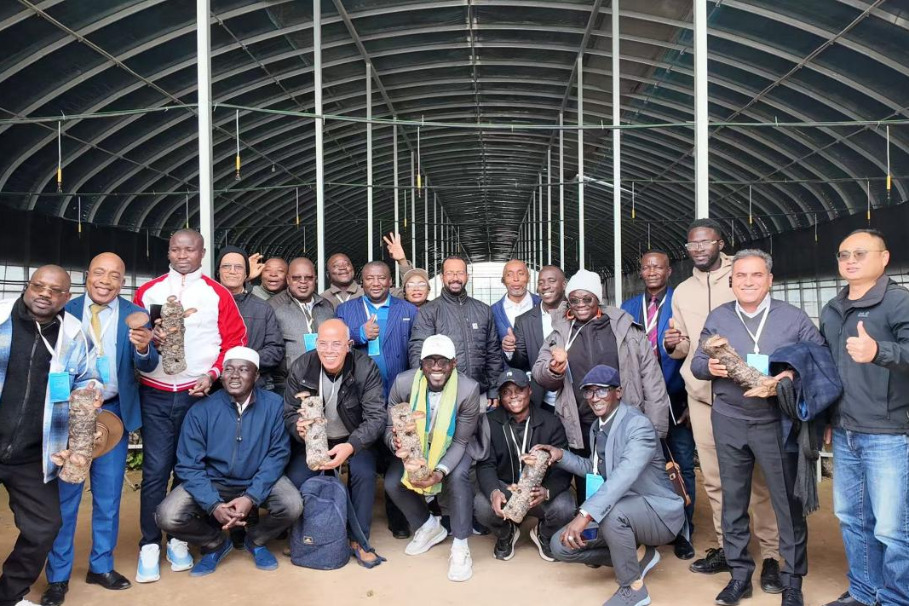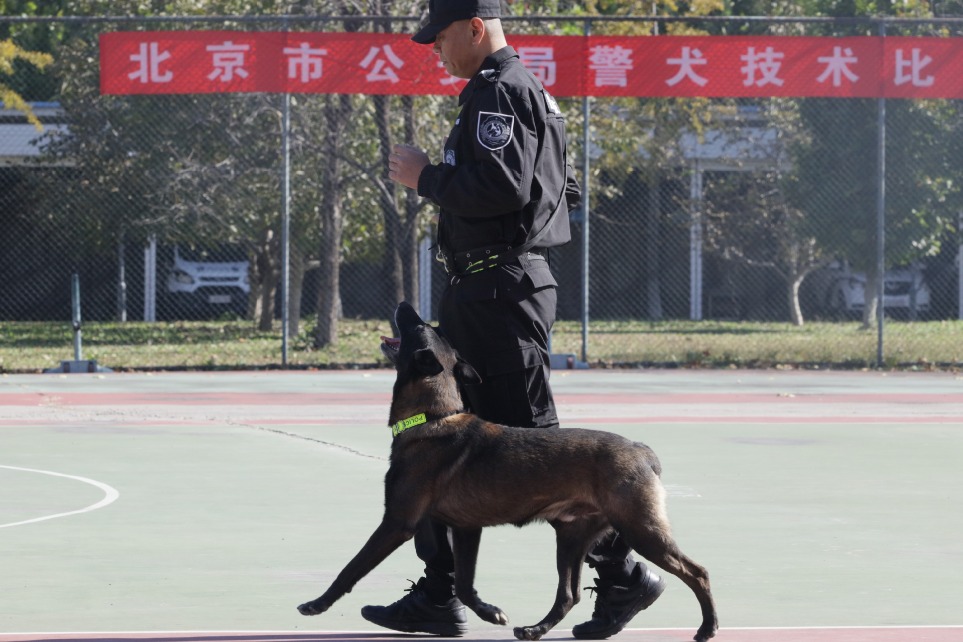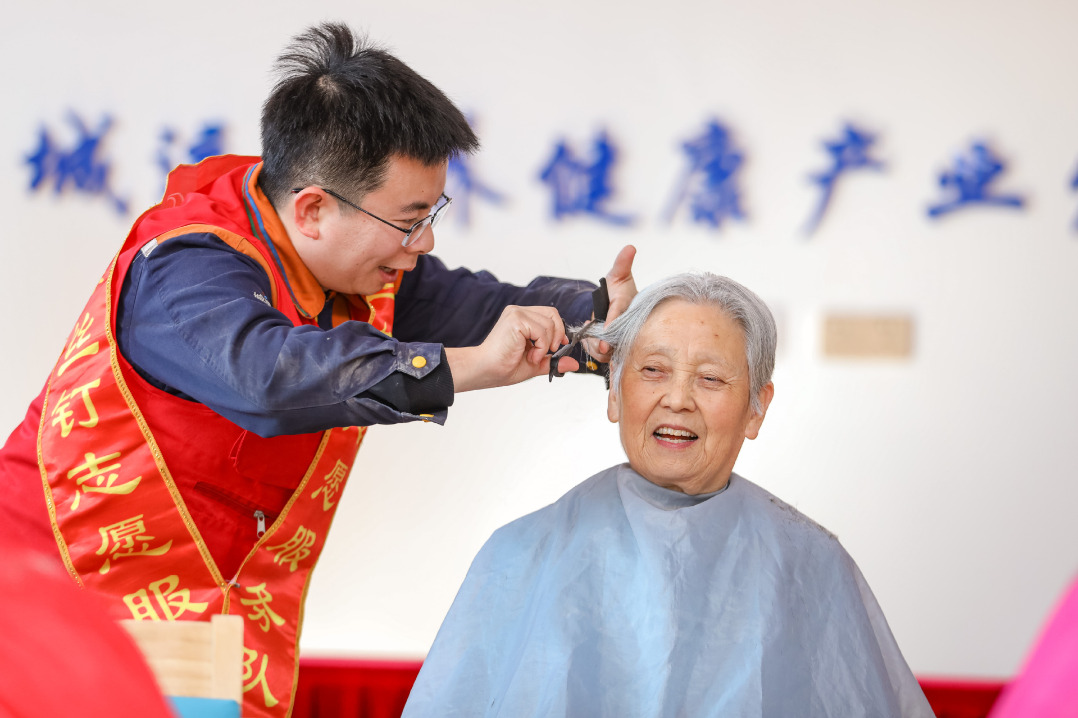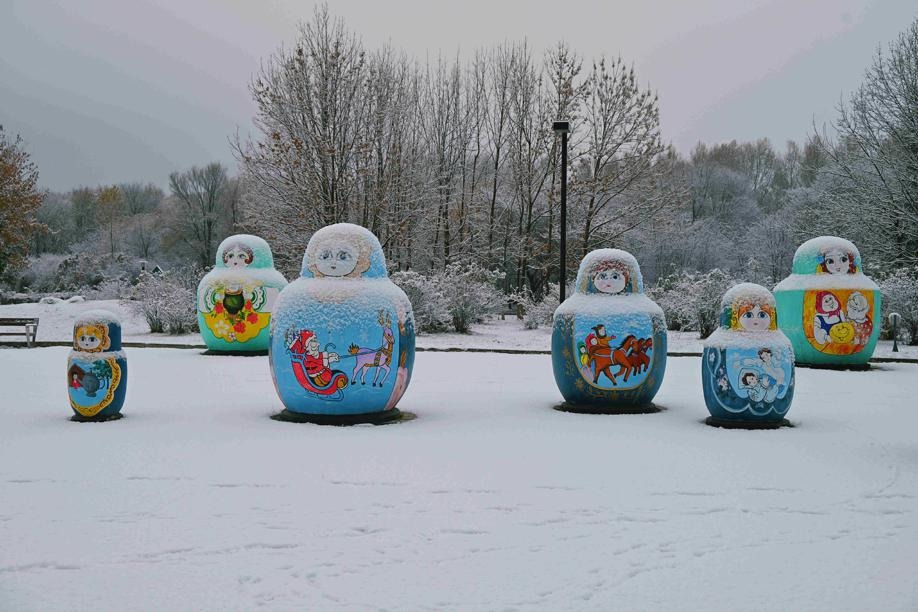Chinese coffee entrepreneur recounts his trailblazing journey

Jing Jianhua clearly remembers that the second China-Africa Economic and Trade Expo opened in Changsha, Hunan province, on Sept 26, 2021, because it is also the day his coffee shop featuring coffee beans imported from Africa opened near the venue of the expo.
"Back then, the COVID-19 pandemic was still raging, but our coffee shop was greeted with great enthusiasm by participants to the expo, both Chinese and African guests," he said.
The African representatives were surprised and delighted that they could taste high-quality coffee from home, he said.
Three years later, his coffee venture has expanded to dozens of stores nationwide, he said, adding that it also offer beans to another sub-brand, which also has dozens of shops.
The Chinese coffee market is growing very quickly, and people aged 18-35 are more accepting of drinking coffee than other beverages, which is why the demand for imported coffee beans will continue to grow, he said.
His brand, Coffee Z, features coffee beans imported from Africa, mainly Ethiopia, which has a long history of growing and making high-quality coffee, and its beans contain unique fruit and flora taste, he said.
When his coffee shop first opened in 2021, about 20 to 30 percent of its coffee beans were from Africa, which has grown into 70 to 80 percent nowadays, he said.
The company obtained 100 million yuan ($14 million) of financing in last March and it is actively in talks with investors to secure a new round of investment by the end of this year, he said, adding that the new investment will be used for further expansion and use of robots in making and delivering coffee.
Jing tried different work in Changsha before he founded a coffee trade company in 2013.
As a member of the business delegation sent by the Hunan provincial government, he visited Uganda, Ethiopia and Nigeria in 2018, which opened his horizon about the industry and he became determined to introduce African coffee to the Chinese market.
At a coffee plantation in Uganda, he saw a young woman and a boy working and living in poor conditions while international coffee prices remained high all the time.
He believes that by building the supply chain of African coffee to China and improving the production technology can greatly improve the livelihood of coffee farmers in Africa.
The Chinese coffee market is growing at 20 to 25 percent annually, and the demand for high-quality coffee is also rising with the consumption level increasing. There is going to be a bigger need for good coffee beans, he said.
"With the ever-closer relationship between China and Africa, we believe it is our best choice to associate our business with the continent and the coffee beans from there," he said. "We have made it our life-long career."
With three China-Africa Economic and Trade Expos being held in Changsha, Hunan is one of the most active provinces in economic and trade ties with Africa and a trailblazer in China-Africa cooperation.
Hunan's trade with Africa has grown from 15.08 billion yuan in 2012 to 55.66 billion yuan in 2022. Its trade figures in 2022 ranked first in central and western China and eighth nationwide, according to Xinhua News Agency.
Hunan's Department of Commerce has projected the province's trade with Africa to exceed 100 billion yuan by 2025, with an annual growth rate of above 25 percent.
Among 21 pilot free trade zones in China, the China (Hunan) Pilot Free Trade Zone has the task of building a "demonstrative highland" of cooperation between China and Africa.
Jing has leveraged the favorable policies of the platforms by directly purchasing the raw material from Africa and opening a small coffee roasting factory in Changsha, which means his coffee shops can use the most fresh coffee beans from Africa.
The policies have reduced the costs by 30 percent, so customers can get a taste of authentic African coffee with affordable prices, he added. The average coffee product at his shop is sold at 13.5 yuan.
To add some Hunan flavor to his coffee, Jing also decided to use honey from Xiangtan, Hunan, to replace sugar in his latte.
It has not only brought new taste to its coffee, but also made it healthier and increased the sales of local honey, he said.
All of his 50-plus coffee stores uses Xiangtan honey in their coffee products and he plans to increase the number of stores to around 100 by the end of this year, which is expected to increase the sales of honey by more than 20 million yuan, he added.
Ai Hui, 38, a Changsha resident, is a regular customer to Jing's coffee shop. He goes there every day and sometimes twice a day.
The African coffee tastes rich and smells good, not too bitter or burnt, he said.
"Moreover, with such high quality, it is sold at relatively cheap price, so me and many of my friends often go there."
It is a habit to drink coffee and also a lifestyle, he added.
- Guangzhou exempts kindergarten fees for select age groups
- World Shiology Forum focusing on food system opens in Hainan
- ELLE Style Awards position Sanya as a style capital
- Shanghai Tower Towerrunning Challenge to kick off in Nov
- Former Qinghai senior official receives life for bribery
- China ramps up control of non-CO2 greenhouse gases





































